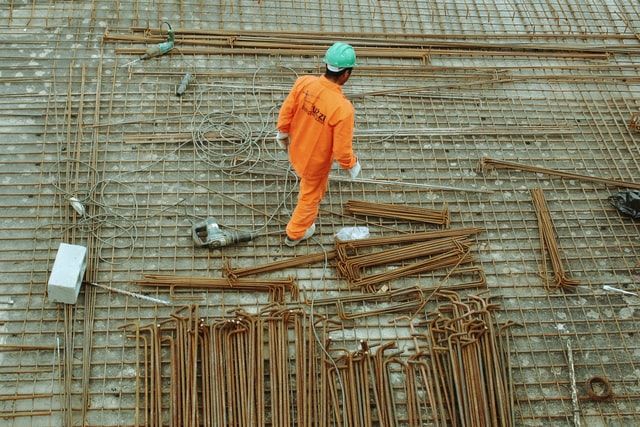4 Ways AI Will Disrupt Design in the Construction Sector
The construction industry can look forward to greater efficiency and productivity driven by the innovations in Artificial Intelligence (AI) that can be applied various areas such as planning, design, safety, project management and material management. A review on Artificial Intelligence in the Construction Industry revealed that ~60% of AI application research conducted within the last decade will support development, alongside technologies such as internet of things (IoT). The integration of these technologies into construction will lead to the increased production and capture of data which, which the right analytical tools, can lead to the more intelligent management of construction projects across their lifecycle.
There is one particular area industry leaders are increasingly recognising the power of AI to improve a complex and dynamic but nonetheless crucial aspect of construction: design. In this article, we’ll be looking at four key ways AI is disrupting the design process:
The design process can speed up through technology
Design is complex, tedious and more than often an iterative process. Budgets and requirements can change or a design that sounds great in theory isn’t always functional. Fortunately, the rise of AI in design will provide a valuable set of tools that help designers complete these tedious and time-consuming tasks via automation. By leveraging AI, designers can rely on these technologies to automate the more administrative and cumbersome tasks of the design process to free up time to focus on critical and creative thinking or customizing to specific needs.
Our article ‘AI in Construction’ illustrated how an area of AI known as ‘genetic programming’ can be used to automate the design process for timber floor plans for Daisy AI. Daisy uses AI to explore an expansive range of design possibilities and generates an optimal design solution in minutes based on defined parameters such as legal compliance, cost and material efficiency.
The advantage AI offers it the ability to rapidly explore, assess and generate an array of different design scenarios based on user-defined parameters, meaning architects and designers can discover new possibilities and spend more time assessing how to customize a baseline design to user needs rather than always starting from scratch.
User-defined design criteria will be easier to define and satisfy
One of the challenges facing designers is defining the design criteria: those requirements a project must fulfill to be successful. Establishing clear design criteria is essential to create a shared vision, align various stakeholders involved in the design process and to define the requirements. Whilst critical to provide direction for the overall project structure, certain factors can make it difficult to define and satisfy these technical requirements.
This could change with the rise of AI and machine learning, which requires data to be well organized and structured to generate insights and predictions. This process is critical to maximizing data utility and value in the short and long-term. An unexpected benefit could be that it helps overcome the friction in defining user-defined criteria by being able to readily access a given companies entire historical knowledge of designs and the requirements that shaped them, assess similarities with common projects and provide a foundation to build upon.
AI can generate sustainable designs
A study published by the University of Strathclyde Glasgow identified one of the most frequent design criteria requested by end users is sustainability. AI-driven systems can create efficiencies at various stages of a design process to reduce wasted raw materials and energy and increase overall sustainability. For example, the designs generated by Daisy AI reduce material waste in the construction of timber floor plans by ~8% compared to plans designed by humans. A further benefit is that Daisy’s more efficient designs minimizes complexity and makes it easier for builders to work with timber and encourages the move away from less sustainable alternatives such as concrete and steel.
There are many other opportunities for AI to improve sustainability in various other construction design processes, such as concrete builds with precast concrete, spatial planning of rooms and buildings and the strategic positioning of thermal insulation to reduce heat loss during winter or ingress during summer. The key thing is having a well-defined problem, high-quality data and identifying the right AI tools to solve the challenge.

AI can reduce errors and improve construction quality
AI excels at analysing large troves of data, recognizing trends and patterns, and automating tasks. Thus, AI is highly sought after to optimise processes, increased efficiency, productivity and produce higher quality designs faster and even compare performance according to specified criteria across designs. For instance, the Nemetschek Group utilises machine learning to assess regulation problems in architectural scale models during the design stage. AI systems are used to identify common patterns among designs so that problematic components can be flagged and addressed by relevant experts. By identifying and acting on potential problems and channeling these learnings into an AI system, designers and engineers embed the knowledge and expertise into a technology that minimizes resource utilization and energy consumption in the long-term.
Developing the future
AI can accelerate the design process without compromising the quality of design. Through the assistance of AI technologies, construction professionals can develop sustainable designs, meet user-defined requirements, and improve their design quality at the same time. As technology further advances, the industry can expect that AI will become an integral component of the contemporary design process.
Written for Brainpool AI by Rileigh Jazmin
